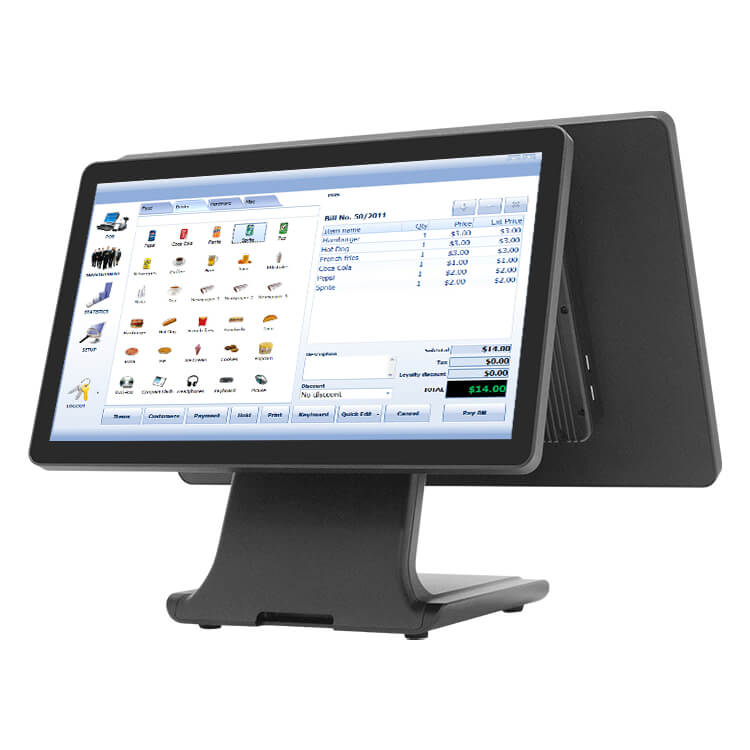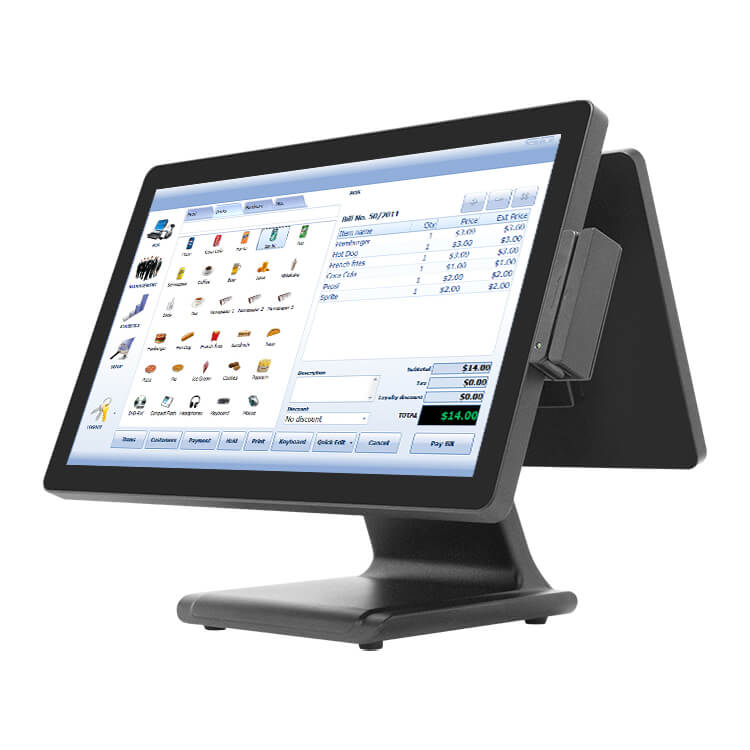A point of sale terminal, often referred to simply as a POS system, is a combination of hardware and software used by businesses to process transactions and manage sales. These systems typically consist of a computer or tablet, a cash drawer, a receipt printer, and a barcode scanner or card reader. However, modern POS systems can also incorporate additional features such as touchscreen displays, customer-facing displays, and inventory management tools.
Functionality of POS Terminals
1.Transaction Processing:
At its core, the primary function of a POS terminal is to process transactions efficiently and accurately. When a customer makes a purchase, the cashier or sales associate enters the items into the POS system, either by scanning barcodes or manually inputting product information. The system then calculates the total amount due, including any taxes or discounts, and prompts the customer to select their preferred payment method.
2.Payment Processing:
POS terminals support various payment methods, including cash, credit cards, debit cards, mobile payments, and electronic wallets. Once the customer selects their preferred payment method, the POS system securely processes the transaction, authorizes the payment with the relevant financial institution, and generates a receipt for the customer.
3.Inventory Management:
In addition to processing transactions, POS terminals play a vital role in inventory management. As items are scanned or manually entered into the system during a sale, the POS system automatically updates the inventory records, reducing the risk of overstocking or running out of popular items. Furthermore, POS systems can generate reports that provide valuable insights into sales trends, product performance, and inventory levels, helping businesses make informed decisions about purchasing and stocking merchandise.
4.Customer Relationship Management (CRM):
Some advanced POS systems incorporate CRM features that allow businesses to track customer information, preferences, and purchase history. By collecting and analyzing data on customer behavior, businesses can personalize marketing efforts, offer targeted promotions, and enhance the overall shopping experience, fostering customer loyalty and repeat business.
5.Analytics and Reporting:
POS terminals generate a wealth of data that can be leveraged to gain actionable insights into business performance. Through customizable reports and analytics dashboards, businesses can track sales metrics, monitor employee performance, and identify areas for improvement. This data-driven approach empowers businesses to optimize operations, identify growth opportunities, and stay ahead of the competition.

Importance of POS Terminals in Modern Businesses
1.Efficiency and Accuracy:
POS terminals streamline the checkout process, reducing waiting times for customers and minimizing the risk of errors associated with manual calculations. By automating tasks such as inventory management and transaction processing, POS systems enable businesses to operate more efficiently and allocate resources more effectively.
2.Enhanced Customer Experience:
A smooth and seamless checkout experience is essential for customer satisfaction. POS terminals with intuitive interfaces and fast transaction processing capabilities contribute to a positive shopping experience, encouraging repeat business and fostering customer loyalty.
3.Business Insights and Decision-Making:
POS terminals provide businesses with valuable data and insights that can inform strategic decision-making. By analyzing sales trends, inventory levels, and customer behavior, businesses can identify opportunities for growth, optimize pricing strategies, and tailor marketing efforts to meet the needs of their target audience.
4.Scalability and Adaptability:
Whether a business operates a single storefront or a chain of retail locations, POS systems can scale to accommodate changing needs and growing demand. With cloud-based POS solutions, businesses can easily add new features, integrate with third-party applications, and expand their operations without significant upfront investment.
POS systems will likely become even more sophisticated, offering new features and capabilities to meet the evolving needs of businesses and consumers alike. Investing in a reliable and feature-rich POS system is essential for businesses looking to stay competitive in today's retail landscape.




